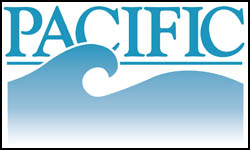Welcome to our monthly tax newsletter designed to keep you informed of the latest tax issues.
We hope you enjoy reading the newsletter and remember, we are here to help you so please contact us if you need further information on any of the topics covered.
Best wishes
Bronya
In our newsletter for March 2019:
Please click the headings below to expand.
The restriction applies between £100,000 and £123,700 adjusted net income. Another way that you could avoid this trap would be to agree with your employer to sacrifice some of your salary in exchange for a tax free benefit in kind. These rules changed from 6 April 2017 but employer pension contributions, bicycles, and employer provided childcare would continue to be tax effective.
Note that the unused allowance for a particular tax year may be carried forward for three years and can be added to the relief for the current, but then lapses if unused. Hence the unused pension allowance for 2015/16 will lapse on 5 April 2019 if unused. Note that under the current rules the net after tax cost of saving £10,000 in a personal pension for a higher rate taxpayer is only £6,000 but there continue to be rumours that this generous relief may be reduced in future.
An even more generous tax break is available for investment in a qualifying Seed EIS company where income tax relief at 50 per cent is available and in addition it is possible to obtain relief against your 2018/19 capital gains. Both EIS and Seed EIS also provide a CGT exemption when the shares themselves are sold after 3 years. Note however that qualifying EIS and Seed EIS companies tend to be risky investments so professional investment advice should be taken.
A 30% income tax break is also available by investing in a Venture Capital Trust.
In some schemes, your employer has the option to pay in more than the legal minimum. In these schemes, you can pay in less as long as your employer puts in enough to meet the total minimum contribution of 8%.
The AIA provides a 100% tax write off for equipment used in your business. This tax relief extends to fixtures and fittings within business premises such as electrical, water and heating systems. AIA does not apply to motor cars but there is a special 100% tax relief if you buy a new car that emits no more than 50g CO2 per kilometer.
It is intended to make it easier for businesses who import from the EU using roll on roll off (RO-RO) facilities. This development will be of interest to any businesses involved in intra-EU trade. In particular, those businesses whose goods arrive and depart from one of the UK’s RO-RO locations for example, Dover or the Channel Tunnel.
Businesses need to consider whether they wish to make use of this provision. HMRC has advised that businesses will need to register to use Transitional Simplified Procedures (TSP), this can be done from 7th February 2019 via the following link: www.gov.uk/hmrc/eu-simple-importing.
These transitional simplified procedures reduce the amount of information you need to give in an import declaration when the goods are crossing the border. They do this by allowing you to defer giving a full declaration and paying the relevant customs duty.
2 March 2019 – 5% penalty imposed on 2017/18 income tax, CGT, class 2 and 4 NIC still unpaid at this date
19 March 2019 – PAYE & NIC deductions, and CIS return and tax, for month to 5 March 2019 (due 22 March 2019 if you pay electronically)
1 April 2019 – Corporation tax payment for year to 31 June 2018 (unless quarterly payments apply)
1 April 2019 – MTD for VAT starts to apply to VAT record keeping and VAT reporting for return periods commencing after this date (unless deferral to 1 October 2019 applies)
5 April 2019 – End of 2018/19 tax year. Many tax actions need to be taken by this date (see above)
6 April 2019 – New workplace pension limits apply, 5% from the worker and 3% from the employer, an overall minimum of 8% of earnings
19 April 2019 – PAYE & NIC deductions, and CIS return and tax, for month to 5 April 2019 (due 22 April 2019 if you pay electronically)
